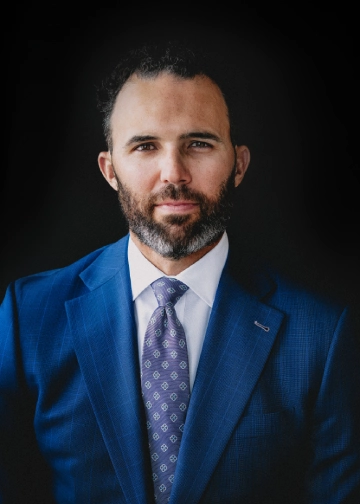The Definition of Money Laundering
Money laundering is defined as disguising illegally earned income as legitimate financial assets. In simple terms, money laundering the act of taking ‘dirty’ money earned through criminal activity and making it appear ‘clean’.
Some Examples of Money Laundering
Money laundering involves taking money earned illegally and placing it a financial institution. There are numerous illegal activities that could be disguised as legal earnings.
- Embezzlement
- Domestic/International Terrorist Groups
- Drug Trafficking
- Guns Trafficking
- Other Illegal Mean of Collecting Funds
Money laundering is achieved through several tactics, including smurfing, foreign exchanges, wire transfers, and/or investments.
Texas Law on Money Laundering
Texas Law related to money laundering is as follows:
Sec. 34.02. MONEY LAUNDERING.
(a) A person commits an offense if the person knowingly:
(1) acquires or maintains an interest in, conceals, possesses, transfers, or transports the proceeds of criminal activity;
(2) conducts, supervises, or facilitates a transaction involving the proceeds of criminal activity;
(3) invests, expends, or receives, or offers to invest, expend, or receive, the proceeds of criminal activity or funds that the person believes are the proceeds of criminal activity; or
(4) finances or invests or intends to finance or invest funds that the person believes are intended to further the commission of criminal activity.
(a-1) Knowledge of the specific nature of the criminal activity giving rise to the proceeds is not required to establish a culpable mental state under this section.
(b) For purposes of this section, a person is presumed to believe that funds are the proceeds of or are intended to further the commission of criminal activity if a peace officer or a person acting at the direction of a peace officer represents to the person that the funds are proceeds of or are intended to further the commission of criminal activity, as applicable, regardless of whether the peace officer or person acting at the peace officer’s direction discloses the person’s status as a peace officer or that the person is acting at the direction of a peace officer.
(c) It is a defense to prosecution under this section that the person acted with intent to facilitate the lawful seizure, forfeiture, or disposition of funds or other legitimate law enforcement purpose pursuant to the laws of this state or the United States.
(d) It is a defense to prosecution under this section that the transaction was necessary to preserve a person’s right to representation as guaranteed by the Sixth Amendment of the United States Constitution and by Article 1, Section 10, of the Texas Constitution or that the funds were received as bona fide legal fees by a licensed attorney and at the time of their receipt, the attorney did not have actual knowledge that the funds were derived from criminal activity.
Texas State Penalties for Money Laundering
Taken directly from Penal Code Title 7, the penalties include:
(1) a state jail felony if the value of the funds is $2,500 or more but less than $30,000;
(2) a felony of the third degree if the value of the funds is $30,000 or more but less than $150,000;
(3) a felony of the second degree if the value of the funds is $150,000 or more but less than $300,000; or
(4) a felony of the first degree if the value of the funds is $300,000 or more.
(f) For purposes of this section, if proceeds of criminal activity are related to one scheme or continuing course of conduct, whether from the same or several sources, the conduct may be considered as one offense and the value of the proceeds aggregated in determining the classification of the offense.
(g) For purposes of this section, funds on deposit at a branch of a financial institution are considered the property of that branch and any other branch of the financial institution.
(h) If conduct that constitutes an offense under this section also constitutes an offense under any other law, the actor may be prosecuted under this section, the other law, or both.
Federal Laws That Apply to Money Laundering
Money laundering has been illegal in various forms for decades, but most recently the United States put in place strict laws in 1986 and federal money laundering charges are defined under 18 U.S.C §§ 1956 and 1957. There are also other acts in place, including the bank secrecy act, that prevent money laundering from occurring. The Bank Secrecy Act is quite important when it comes to money laundering.
The Bank Secrecy Act?
The Bank Secrecy Act was enacted in 1970 to combat money laundering in the United States. This act requires banks to comply with regulations regarding client bank accounts. Financial institutions are required to report any cash deposits over $10,000 (single or multiple transactions) to Internal Revenue Service (IRS).
Gallian Firm are experienced criminal defense attorneys who will aggressively defend you against money laundering charges. They will fight and win for you. If you are facing charges for money laundering in Dallas or anywhere in the USA (for federal charges), consult with the experienced, aggressive criminal defense lawyers at Gallian Firm. Call (214) 432-8860 as soon as possible for a free case review and consultation.
Possible Penalties for Money Laundering
The Financial Crimes Enforcement Network works with other government agencies to prevent, investigate, and pursue cases of money laundering the United States. The penalties for money laundering will depend on several factors, including the other charges in the case, amount of money involved, and your criminal history. A conviction for money laundering could result in a prison sentence of up to 20 years and fines of up to $500,000.
Strategic Defenses for Money Laundering
There are several different strategies that may be effective in fighting allegations of money laundering. Common strategies may include:
- The funds were not obtained illegally.
- The defendant was unaware that any illegal activities had occurred.
- The defendant was coerced into a money laundering scheme.
- The defendant is a victim of entrapment and was involved by force and/or intimidation.
The prosecution will need to prove that the defendant obtained funds illegally and knowingly participated, intentionally and willfully. Your criminal justice lawyer’s job is to create doubt within the courtroom. Any reasonable doubt can be enough to discredit the prosecution’s case and prove your innocence.
Contact Gallian Firm, Money Laundering Defense Attorneys to Fight for You
Gallian Firm has experienced criminal defense attorneys who will aggressively defend you against money laundering charges. Their skill and experience will serve you in fighting these charges.
If you are facing charges for money laundering in Dallas or anywhere in the USA (for federal charges), consult with the experienced criminal defense lawyers at Gallian Firm. Call (214) 432-8860 as soon as possible for a free case review and consultation. They are awaiting your call!
Gallian Firm could potentially have these charges dropped or lessened through his fierce defense strategies. If you have been charged with money laundering, reach out and call (214) 432-8860 as soon as possible for a free case review





